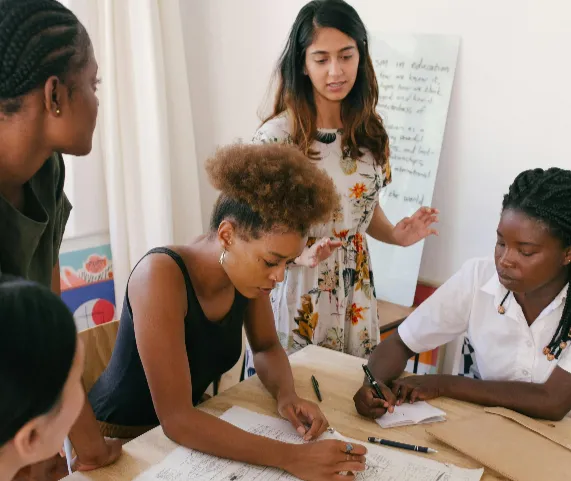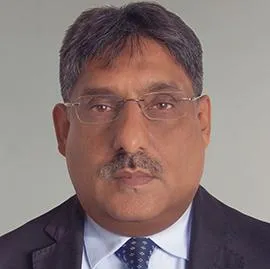Your future is yours to build: navigating the path from matric to meaningful work
Embracing the future

See these exams not as a stressful finale, but as the foundational layer of your professional profile, says the writer.
Image: RF._.studio _ /pexels
TO THE Matric Class of 2025, as you sharpen your pencils and your minds for the final exams, you are undoubtedly thinking about the world that awaits you. Headlines scream of an economy under strain and an unemployment rate that can feel like an insurmountable wall. The statistics are sobering: youth unemployment sits at a staggering 46.1%, and for those aged 15 to 24, it climbs to over 62%.
It is a reality we cannot ignore. But here is the other, more crucial truth: these numbers are a picture of the economy, not a prophecy for your future. While the challenges are real, they are not impervious to strategy, skill, and an unwavering spirit. Your task is not to be discouraged by the landscape but to learn to navigate it with foresight and determination. The journey begins now, not after your last exam paper is handed in.
Understanding the challenge: why the job market is tough
South Africa’s economy is not creating enough jobs to absorb the thousands of talented young people entering the workforce each year.
As economist Kevin Lings of Stanlib notes, we need to create roughly 600 000 jobs annually just to keep pace. The primary engine for this job creation - the private sector - is not firing on all cylinders due to persistent economic constraints. This means you will face the classic catch-22: “you need experience to get a job, but you need a job to get experience.”
It means that for every opportunity, there will be significant competition. Acknowledging this is not about fostering fear; it’s about fostering a fighter’s mindset. It pushes you to be smarter, more adaptable, and more proactive than the situation demands.
Your exam focus: the first building block
Your immediate priority is your matric finals. See these exams not as a stressful finale, but as the foundational layer of your professional profile. A strong matric certificate is your first tangible asset. It signals discipline, competence, and the ability to see a long-term project through to completion. It opens doors to tertiary education, bursaries, and learnerships that require specific subject passes. Pour your energy into these exams. This is your first job, and excelling at it is your first success.
Beyond the certificate: forging your own path
Once the exams are over, the real work of building your employability begins. The key is to shift from being a job-seeker to a value-creator. Here’s how:
1. Acquire the skills the economy needs: Look towards the industries that are growing, not stagnating. Technology, digital marketing, artificial intelligence, data analysis, and the green economy (like solar energy installation and maintenance) are hungry for skilled talent. You don’t always need a four-year degree to enter these fields. Consider a high-demand diploma, a certified online course (many are free or low-cost), or a learnership in these sectors. The World Economic Forum confirms that businesses are actively seeking these new skills.
2. Break the “no experience” cycle: You must gain experience, even if it’s not a formal job. This is non-negotiable.
- YES Programme: Register with the Youth Employment Service (YES) for a 12-month paid work experience placement.
- SAYouth.mobi: This is your go-to, zero-rated platform. Register and explore thousands of opportunities for work, training, and volunteering.
- Internships and volunteering: Offer your time to a local business, NGO, or community project. The reference you earn could be more valuable than the small stipend (or lack thereof).
3. Consider the entrepreneurial route: You are digital natives, born into a world of global connectivity. If a job doesn’t materialise, create your own. Identify a problem in your community and build a small business around solving it.
- Start small: Offer freelance services like graphic design, social media management, or tutoring. Sell handmade goods or curated products online.
- Seek support: The Small Enterprise Development Agency (Seda) offers free business mentoring, technical support, and help with registration. The Youth Challenge Fund provides financial support for viable ideas.
A mindset for success
The most important tool in your arsenal is your mindset.
- Network relentlessly: Talk to people. Connect with professionals on LinkedIn. Attend webinars and workshops. You’ll be surprised how many people are willing to offer advice if you ask politely and show genuine interest.
- Be resilient: Rejection is not a reflection of your worth; it’s a part of the process. Learn from it, adapt, and apply again.
- Stay positive: The energy you project is the energy you attract. Approach interviews and opportunities with confidence and a willingness to learn.
It is also important to be aware of the broader structural landscape, including policies like B-BBEE and equity measures. These frameworks mean that the competition for limited spaces in tertiary institutions and the job market is intensely fierce. This reality is precisely why you must strive to be exceptional - to do exponentially better than the minimum - to ensure you stand out and secure your opportunity.
The government’s initiatives, from the Presidential Employment Stimulus to the Employment Tax Incentive, are attempts to create a bridge. But the strongest bridge is the one you build for yourself through preparation, skill, and unwavering self-belief. Yes, the economy is stagnant. But you are not. You are dynamic, capable, and part of a generation that can redefine what it means to work and thrive in South Africa.
Your matric exams are the starting block. Run your race with focus, build your unique set of skills, and step into the future not with fear, but with the confident knowledge that you are building something meaningful - one step, one skill, one connection at a time.

Sanjith Hannuman
Image: File
Sanjith Hannuman is the managing director of Avinash Consultants & Actuaries.
Related Topics: